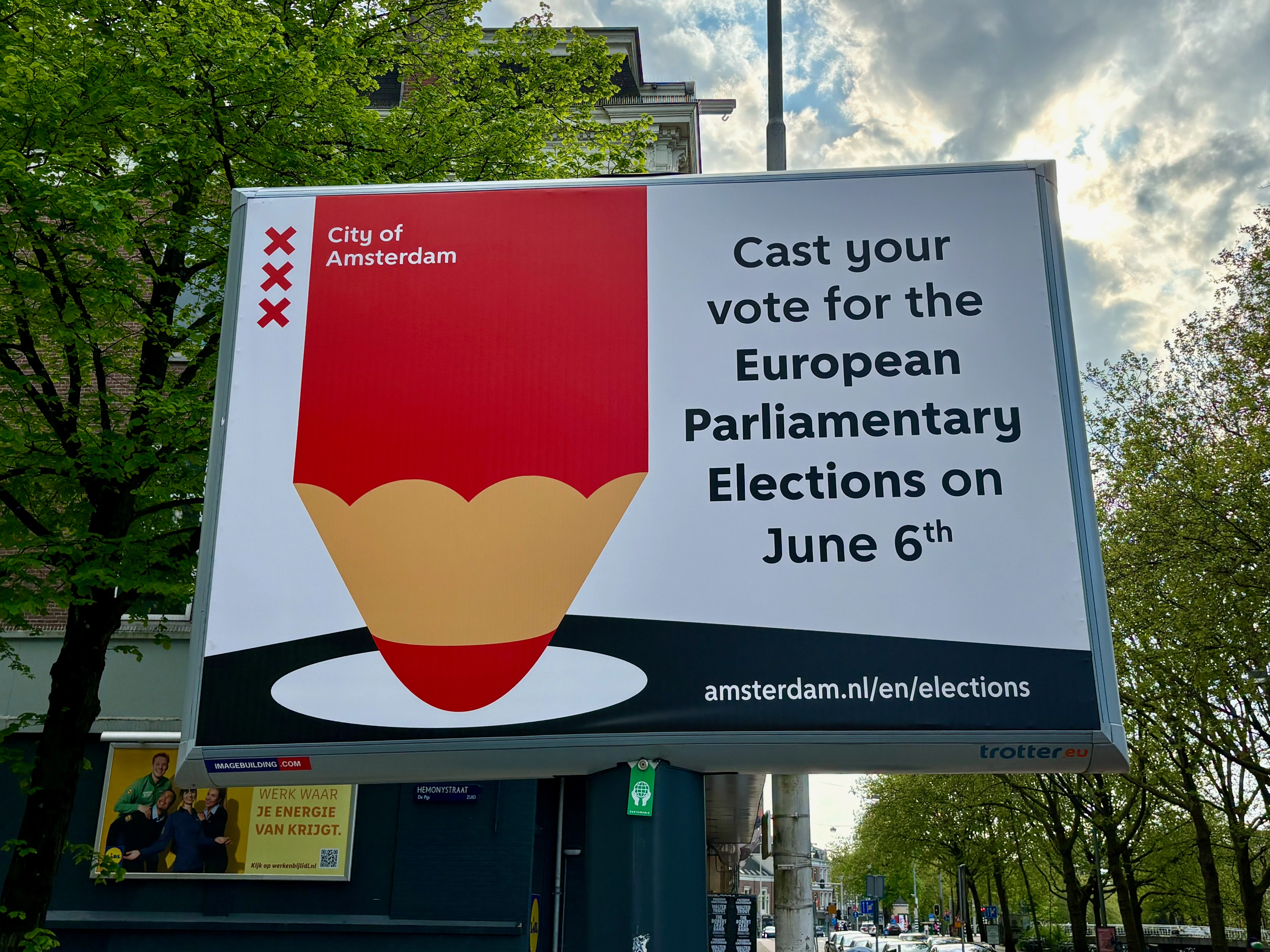
Europe chooses: this is how European elections work
Share on social media:
One month to go until the European elections. The Dutch will vote for their representatives in the European Parliament on 6 June 2024. The elected parliament has a lot of influence on European legislation, for example rules on migration and asylum.
During these elections, Europeans vote for the European Parliament
In European elections, you vote who sits in the European Parliament. In total, there are 720 people in the Parliament. They can pass European laws, change them or say they don't want certain laws. This is also called legislative power. The European Parliament shares this EU legislative power with the
By voting in European elections, you determine who represents you in making new European rules. These rules are mandatory for all countries within the European Union (EU). That means all European countries must follow European law when making their own rules. Parliament also oversees other important EU political organisations, such as the
All adults with European passports may vote
Anyone aged 18 or older who is a national of a country within the EU has the right to vote. In total, some 360 million Europeans may go to the polls. This makes the European elections one of the largest in the world. If you can vote, you will receive a letter about this at home. This contains your voting pass. And information on where you can vote in your area.
European elections take place every 5 years. Usually they are between late May and early June. In the Netherlands, this year's European elections are on Thursday, 6 June 2024. In the following days, until 9 June, other member states go to the polls.
You vote for a candidate of a political party
During the elections, you choose among several candidates who are members of a political party. You can only vote for a candidate from a party active in your EU country. The candidates who are elected work in parliament together with colleagues from other countries. They work together in a
Dutch citizens can only vote for candidates who are members of a Dutch political party. The number of Dutch people in the European Parliament depends on the size of the Dutch population.
The European Parliament sets rules on asylum, migration and human rights in European countries
The people elected to the European Parliament will soon determine, for example, the rules on migration and human rights in Europe. If there is a new European Parliament soon there could be new and stricter rules on asylum and migration. That depends on who is elected to the parliament.
As of 10 June, the results of the elections will be known. Then it will be known which parties are in the European Parliament. After that, it can still take a long time before the new agreements are made by the parliament and new rules apply. This is because first Europe has to agree on these rules. And then all EU countries, such as the Netherlands, will also have time to adjust their own national rules.
Today's European Parliament also affects new rules on migration and asylum
The current European Parliament
If these rules go through, there will be a stricter asylum policy in Europe. All European countries will then have to cooperate with this new policy. So the European elections and this decision in May 2024 could have important consequences for asylum and migration in Europe. But it could be a long time before the new rules take effect everywhere and you notice something of these rules.